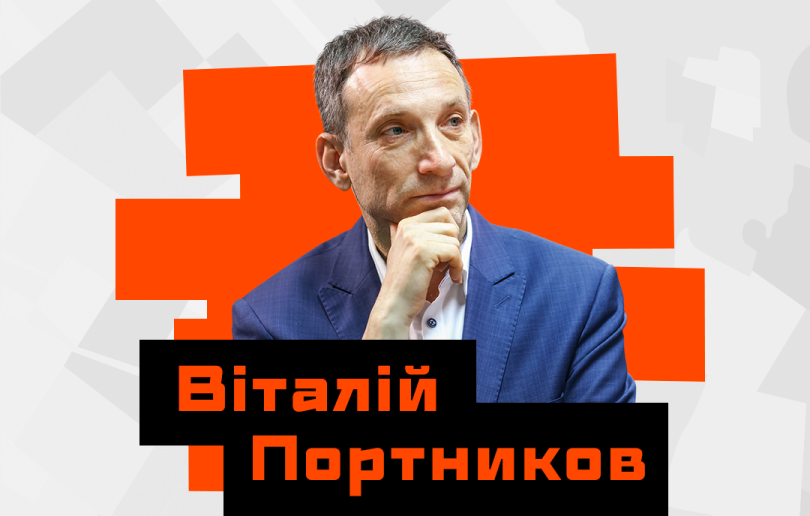The War of Identities
In the days following Russia’s full-scale attack on Ukraine, one European news channel constantly aired a cutscene preceding the news about the war. In it, a girl forced to flee from shelling and bombing told reporters: „I don’t know what he wants!“
This misunderstanding of the true aims of the war is demonstrated not only by people who were taken aback by Vladimir Putin’s heinous attack. I have repeatedly encountered similar misunderstandings in political and expert circles beyond Ukraine. Russia’s war against Ukraine is primarily explained by some irrationality of the Russian president, personal hatred of Ukraine, fear of fully-realized Ukrainian statehood, and other similar motives.
Meanwhile, the groundwork for Ukraine’s conflict with Russia was laid not even by the declaration of Ukraine’s independence on August 24, 1991, but by the very collapse of communist ideology. We seem to forget that before 1991, Ukraine was an independent state from 1918-1920. The Bolsheviks managed to return it to the empire only when, instead of the ideology of Orthodoxy, autocracy, and the nationality of the „triune nation“ of Russians, Little Russians, and Belarusians, they put forward a class ideology and created a fake Ukraine under their red flag. But as soon as the communist gloom dissipated, Ukraine returned to its true statehood, not the one fabricated by the communists.
And what about Russia? Russia, of course, returned to the concept of a „triune nation,“ which was very popular among party officials, KGB officers, and the capital’s intellectual support of the regime even before the collapse of the CPSU. Vladimir Putin consolidated these long-existing ideas about his society in the past to dictate the future of Russia.
Another thing is that Russian authorities were always confident that the independence of Ukraine and the rest of the Soviet republics was a temporary phenomenon. Sooner or later, the imperial state would be restored with the help of political and economic levers. Their main task was to keep the future provinces on a short leash and to prevent them from joining alternative political and military alliances, primarily the EU and NATO. Hence, Russia’s transition from political and economic pressure methods to military force is an entirely predictable reaction to the final stage of Ukraine’s nation state development. Ukraine, not even an EU member yet, was simply signing an association agreement with the European Union in 2014, which meant it was moving farther away from the Russian sphere of influence. For Russia, Ukraine as a member of the EU and NATO is unthinkable.
But what did Putin achieve with his attack on Ukraine? First of all, it is the crystallization of identities. For Russians, the territory of Ukraine is the land of „historical Russia,“ which should eventually become part of it. For Ukrainians, it is their own state, which must be freed from occupation. Against the background of the war, differences among Ukrainians are beginning to disappear. Until recently, we could see a contingent of people with a clear vision of Ukrainian statehood. At the same time, there were those who were more inclined to agree with Vladimir Putin’s statements that Russians and Ukrainians are „one people,“ not to mention people who were not interested in their identity at all. The war significantly reduced – if not completely destroyed – the camp of those who believed that Ukraine and Russia were „one people.“ Those who never thought about the fact that they are Ukrainians were forced to ask themselves questions about the causes of the war and the guilt of Putin and Russia in their personal and shared grief.
This is the formation of identity, which always accelerates in periods of crisis and hostilities. Despite this, many ethnic Ukrainians still speak Russian in private conversations and are far from the reality of classical cultural self-identification. But the key words here are „still“ because the coming of this cultural self-identification, to the Ukrainian language, to a common understanding of the history and prospects of state and civilization building, will definitely take place.
Nothing unites people so much as the prospect of total destruction, the possibility of national defeat, or, on the contrary, common victory. At the same time, it should be understood that similar processes are currently taking place not only among ethnic Ukrainians but also among representatives of other national groups of the country, and obviously primarily among ethnic Russians.
However, a similar crystallization is currently taking place in Russia itself. This process will only intensify when Russia is defeated in the war. We still have yet to determine whether the collapse of Putin’s plan will lead to increased aggression in the Russian national consciousness or to the success of more moderate and cautious forces in Russian society. But it is obvious that this collapse offers a direct path to possible national unity around one’s national idea. And, of course, this idea will determine the consciousness not only of ethnic Russians but also of those representatives of other nationalities who will seek to remain in the „hermetic“ Russian state. This relates mainly to the consciousness of ethnic Ukrainians in Russia. Before the war, ethnic Ukrainians with Russian passports could still hold on to their national identity and sing Ukrainian folk songs in friendly company. Once the war is over, their folk songs and they, along with them, will finally become Russian.
The conclusion from this is quite simple. It was Putin’s war that finally interrupted the diffusion of identities that had been taking place for centuries in the spaces of the former empire and turned it into a crystallization and, therefore, a real battle of identities. The civilizational abyss between Russian and Ukrainian identities promises to be the primary – and long-lasting – result of this terrible war.











